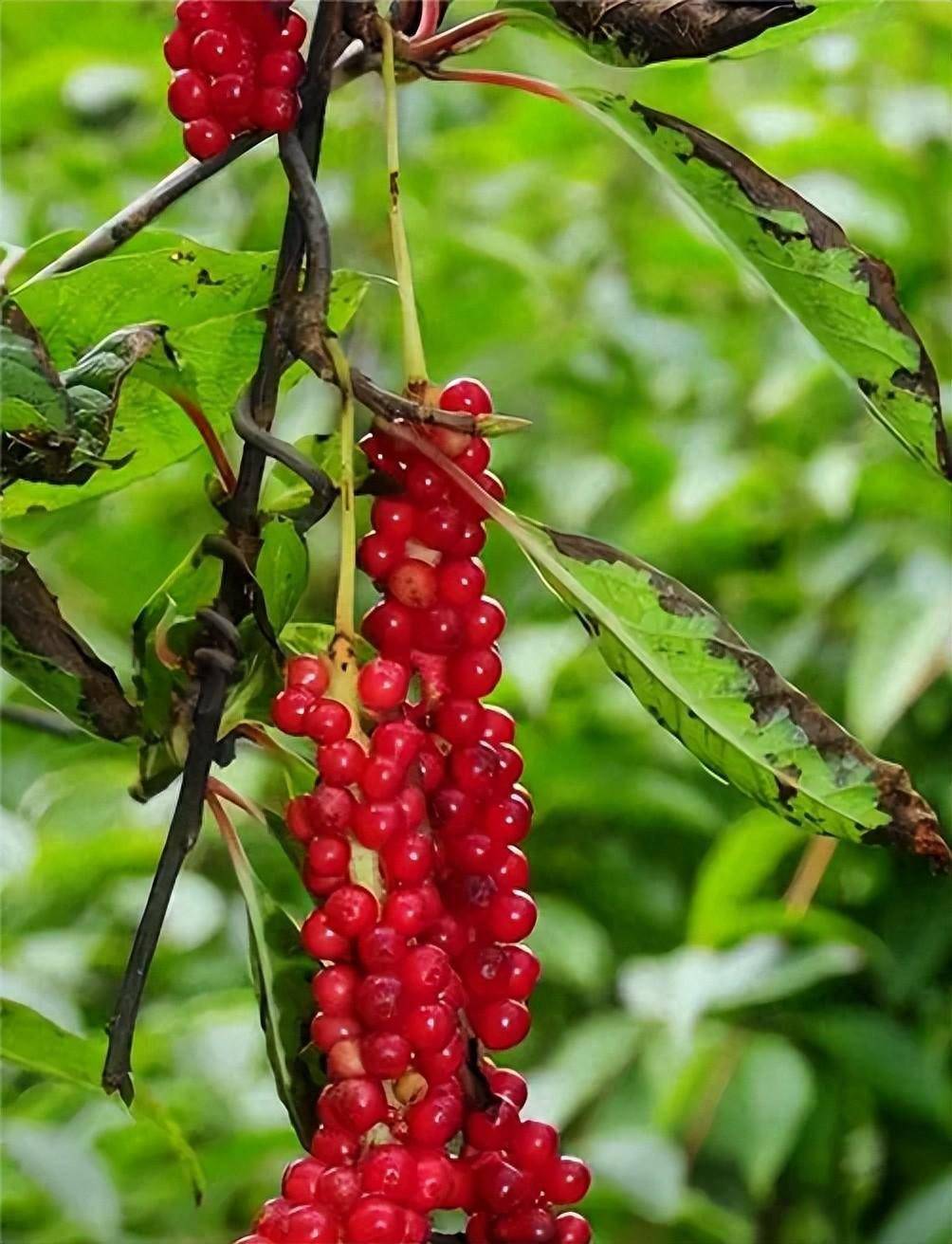Today we are going to talk about “Schisandra,” a medicinal herb that grows in rural fields and is not to be trifled with when it comes to fighting depression.
Schisandra, also known as “Chinese magnolia vine” and “Five-Flavor Berry,” was described by the Song dynasty physician Su Song as having “a sweet and sour flesh, a bitter core, and a hint of saltiness, which is where the five flavors can be found.” It contains all five tastes – sour, sweet, bitter, spicy, and salty – and can enter the heart, kidney, and lung meridians, with its medicinal properties reaching deep inside the body, nourishing Yin fluids, improving Qi deficiency, and having a hand in treating depression.
Depressed patients often bear heavy burdens of worry, frequently haunted by negative emotions like depression, anxiety, and sadness. Prolonged depressive moods can lead to liver Qi stagnation, eventually transforming into internal heat. This liver fire burns vigorously within the body, damaging liver and kidney functions, depleting Yin fluids, resulting in imbalance of Yin and Yang, excessive Yang Qi, disturbing the heart and spirit, worsening symptoms such as chest stuffiness and depression.
Schisandra enters the heart meridian to extinguish heart fire and stabilize the mind; enters the lung meridian to assist in spreading and descending lung Qi, regulating the flow of fluids; enters the kidney meridian to replenish kidney Qi, nourish the kidneys, and calm the mind. For patients with depression, it is an invaluable remedy.
When prescribing for patients in clinical practice, I often include Schisandra in their prescriptions to enhance the effectiveness and stabilize their condition.
Recently, a young patient with depression came to the outpatient clinic, only 32 years old, suffering from mental fatigue, confusion, insomnia, and depression due to excessive work pressure. After examining him, I prescribed a “Depression-Relieving and Mind-Calming Decoction” for him:
Bupleurum, Chinese Angelica, White Peony, Schisandra, Cistanche, Poria, Albizia Bark, Stir-Fried Chinese Date Kernel, and Anemarrhena.
Bupleurum and Chinese Angelica are good partners in soothing the liver and relieving depression. Bupleurum disperses liver Qi stagnation, while Chinese Angelica promotes blood circulation and removes blood stasis. Together, they cooperate to disperse stagnant Qi and blood, allowing the body to return to normal functioning;
White Peony and Schisandra further nourish Yin fluids, aiding in improving the flow of Qi, enhancing the body’s internal environment;
Cistanche, Stir-Fried Chinese Date Kernel, and Albizia Bark can stabilize the mind, helping the patient improve sleep quality;
Poria and Anemarrhena eliminate excess dampness in the body, maintaining the balance of Yin and Yang.
After taking this prescription for a period of time, the patient’s condition significantly improved. Symptoms such as chest tightness, shortness of breath, dizziness, weakness, irritability, and insomnia with vivid dreams were quickly alleviated, and he was able to return to work.
As a sedative medicinal herb, Schisandra can be brewed alone or combined with other herbs such as goji berries, ginseng, and sour jujube seeds for good effect.
However, it is important to remember that as beneficial as Schisandra may be, it may not be suitable for certain individuals, and there are medications that may be incompatible with Schisandra. Before use, it is essential to understand these conditions and consult a professional doctor for the best guidance.
A red fruit that can pull out the roots of depression?


